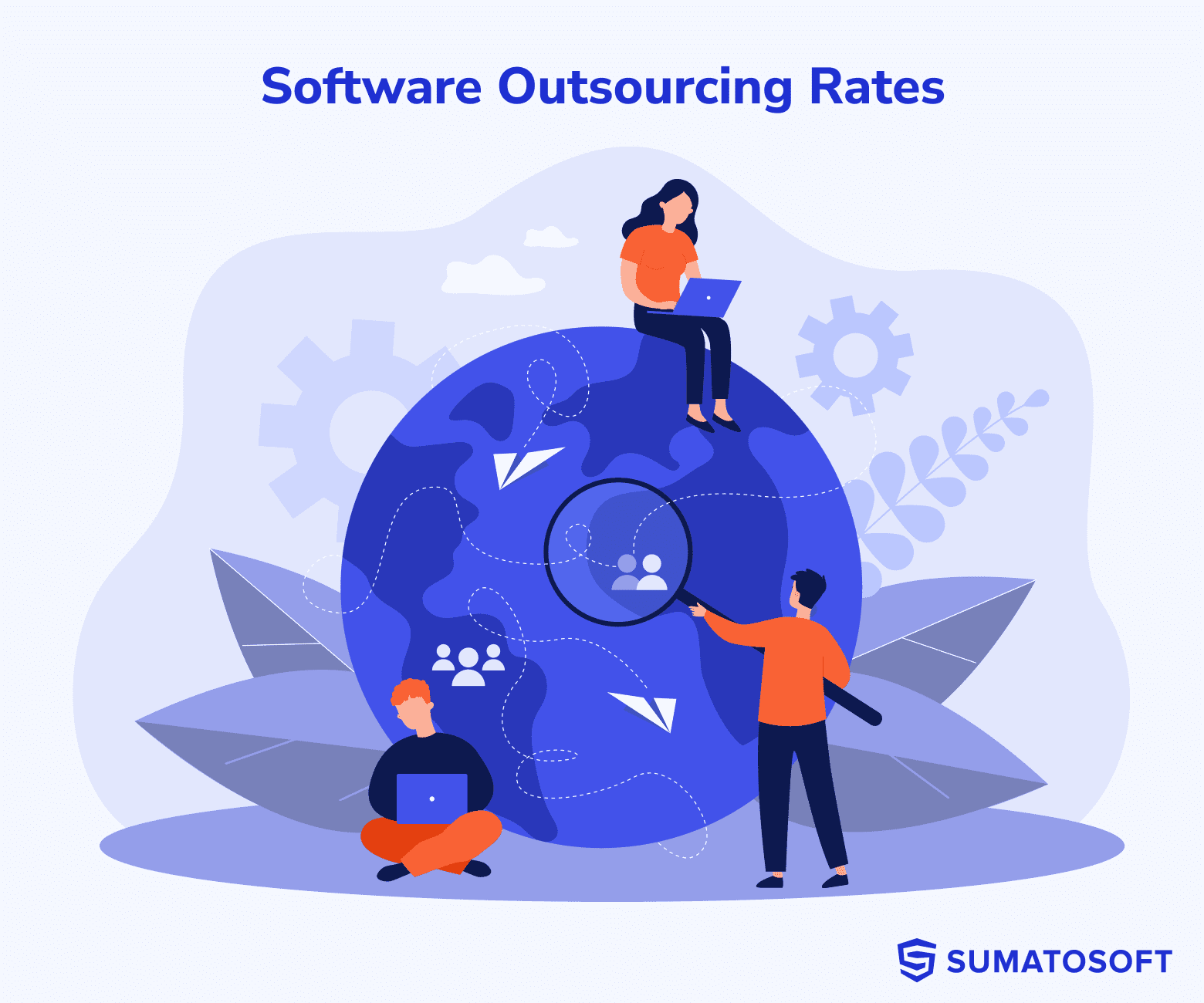Top 25+ Software-as-a-Service (SaaS) Examples You Need To know in 2025


The business has gone a notch higher over the past few years in terms of operations, marketing, and sales. Then pandemics hit the world and we relearned a lot of things from remote working to technological dependencies. The Corona pandemic has made us rely on technologies for every single need when we are stuck at home. Pandemic shocked the world but technologies made it easier to go through it.
Software-as-a-Service (SaaS) managed to change everything around us. It included a few new paradigms in the equation that made day-to-day lives easier. With this said, let us understand the common factor aspects of SaaS.
What is SaaS?
Software-as-a-Service (acronym SaaS) is a cloud computing element that delivers applications over a subscription basis to the users. The users don’t have to maintain, host, and upgrade the software that businesses are using. It is a distributive model ensuring that business owners are focused on growth and market value rather than scalability and infrastructure.
It is also popular as web based or on-demand software that can evolve the use of software applications. The central hosting made it easier to use cloud-based software remotely and pay based on a subscription model, licenses, usage, and features that they require.
As per KBV research, by 2025, the market size of SaaS is expected to rise to $185.5 billion with a CAGR of 21.4%. Statsta is more optimistic since it predicts 208.1 billion worth of SaaS market by the end of 2023. Gartner forecasts that the end-user spendings on all cloud solutions (PaaS, SaaS, IaaS, BPaaS) has exceed $482 billion by 2023.
Compared to other cloud options, business owners are opting for SaaS due to scalability, easy-to-set-up, flexibility, and affordability leading several business functions. Especially, the COVID-19 pandemic made everyone work remotely which increased the popularity of SaaS applications making businesses shift easier to a digital model. If you are planning to create your own Saas Platform, you can hire a Software development company in Canada, and start your own business.
It has become a go-to option for business owners since it can meet several challenges that are otherwise difficult. But what makes SaaS different from PaaS and IaaS?
There is no need to download or install SaaS on the system as compared to other cloud computing applications. This makes it easy to use and helps in staying relevant in the market.
However, why the rapidly growing SaaS market is a good idea for your business?
The SaaS delivery model is drawing more great business ideas that can benefit both customers and businesses. Here are some of the top benefits of SaaS development that make it a popular choice:
- Better scalability using the strategic ability that can help businesses to grow and thrive in the market.
- Greater business agility to boost operational efficiencies and reduce time consumption.
- Remote working that is eliminating the traditional location dependency across the market.
Now that we have a basic understanding of SaaS, let us walk you through some SaaS examples that are ruling the market.
Top 25 Best SaaS Examples To Know In 2025
Several options are available for businesses to explore in SaaS technology. These options have made it easier to analyze big data, integrate the Internet of Things, and connect with third-party apps. Some businesses are using mass email marketing software tools, CRM, and even automation software without giving it much thought. It has become a no-brainer for businesses that allow them to track the performance and tasks of individuals or teams.
We at SumatoSoft develop SaaS products covering different domains such as:
- Software Development
- Marketing
- Analytics
- Sales
- Operations
- Proposals and contracts
- Customer Services
- Custom CRM development
- VoIP
With this said, let us walk you down the top SaaS examples or products that SumatoSoft can work on.
#1 Zoom
Let us start with one of the most popular on-demand video conferencing tools that become the best friend of remote workers amid the lockdown. The all-in-one communication platform has made the top of the SaaS examples due to its increased demand over the past 3 years. Be it professional meetings, casual catchup, or educational classes, Zoom managed to rule our lives. It is also popular for virtual meetings, events, webinars, and conferences. Users can either download the application or run it on the browser.
Pricing model: per year. Price range from €139.9 to €223.20
Year of foundation: 2011
Market capitalization: $32.54 Billion
Revenue: US$2.7 billion (2021)
Number of users: 300 million daily active users
Pros –
- Streamline webinars or meetings on Facebook
- Connect with Google Calendar
- Free to use
- Supports large audience
Cons –
- Lack of comment control
- Too many add-ons and subscriptions
#2 Slack
Slack is popular for some years now as businesses depend on it for internal communication and collaboration. However, it is another prominent SaaS example that comes with several top-class features. It offers end-to-end encryption security and privacy protection when it comes to sharing options. Slack is an informal way to connect with teams and individuals and remote working has increased its use for everyone.
Pricing model: per year / per month. Price range from €6.25 to €14.1 per month
Year of foundation: 2013
Market capitalization: $26.51 Billion
Revenue: $401 million
Number of users: 10+ million daily
Pros –
- Create channels for better communication with the team – public, shared, or private
- Create polls in slack
- Easy to share documents and files
- Collaborate with the team easily
- Integrate with third-party tools
Cons –
- Minimum file storage
- Limited access to conversations as they get deleted after 14 days
#3 Adobe Creative Cloud
Not many are aware of it, but Adobe Creative Cloud is a top SaaS product that offers several features to the web designer, graphic designer, and video or photo editor. The tool offers access to apps like Acrobat DC, Photoshop, Illustrator, and Premiere Pro. It offers easy collaboration with the team, thousands of fonts, and an engaging community.
Pricing model: per year / per month. Price range from €54.99 to €82.49 per month
Year of foundation: 2013 – the project, 1982 – the company
Market capitalization: $186.08 Billion
Revenue: $15.8 Billion (2021)
Number of users: 26 Million Paid Members
Pros –
- Free access to latest release
- Low entry price delivering high quality features
Cons –
- Less attractive editions
#4 Salesforce
Salesforce offers the board solutions for sales team management and customer relationship management (CRM). The product is ruling the market due to its accredited cloud-based CRM that can manage all prospects and leads easily and boost sales. In a decade, Salesforce has managed to drive lucrative ROI in the market for medium and small-sized businesses.
Pricing model: per year. Price range from €300 to €3600
Year of foundation: 1999
Market capitalization: $177.55 Billion
Revenue: $24.66 billion (2021)
Number of users: 150,000
Pros –
- Easy remote access
- Engage fewer IT resources
- Caters to all business requirements
Cons –
- Hidden fees for third-party integration
#5 Zendesk
The customer service platform is popular among several businesses that can streamline and scale up their operations. It is a widely-used tool that offers excellent support to organizations without worrying about extra resources to manage details. It is an easy-to-use tool that is helping small and medium-sized businesses for some time now.
Pricing model: per year. Price range from €588 to €2580
Year of foundation: 2007
Market capitalization: $7.96 Billion
Revenue: $1.34 billion (2021)
Number of users: 40,000
Pros –
- Manage all the clients easily ensuring a consistent experience
- Multi-brand supports
- Customizable customer-facing web interface
Cons –
- Not easy to grasp
- Difficult to collaborate with the team
#6 Canva
The online design tool is a go-to solution for professionals (designers or non-designers) that want to create beautiful graphics for general use. Through Canva, users can design custom graphics, infographics, PowerPoint slides and other visual content. Along with this, it is easy to collaborate with the team, and design professionals, and reduce stress levels and time consumption. It comes with thousands of pre-made design templates making it easy to come up with amazing graphics.
Pricing model: free / per year and users. Price range from €109 up to 5 people
Year of foundation: 2013
Market capitalization: $40 Billion
Revenue: $1 billion (2021)
Number of users: 60 million
Pros –
- Budget-friendly tool
- Offers templates for any online platform
- Team access
Cons –
- A limited number of free templates
- Limited export settings
#7 Netflix
Well, if you have ever wondered “Is Netflix a SaaS company” then let us answer you. Netflix is an online streaming company that produces video content. The on-demand video streaming company offers some award-winning movies and shows to the users eliminating the need for DVDs. It is another SaaS examples as it offers 24/7 access streaming with no advertisements. However, it is a subscription-based model to stream videos and movies.
Pricing model: per month. Price range from €7.99 to €11.99
Year of foundation: 1997
Market capitalization: $81.27 Billion
Revenue: $29.7 billion (2021)
Number of users: 221 million of subscribers
Pros –
- Uninterrupted streaming services
- Multiple viewership
- High-quality library
Cons –
- Genlocking
- Content uncertainty
- Delayed updates
#8 Buffer
If you are a social media market executive then Buffer might be your go-to tool for social media management. It helps in scheduling, publishing, and amazing the efforts that you invest in social media. A buffer is a great social media management tool for entrepreneurs that don’t have much time to post on social media as per their schedule. This tool aims to increase productivity, save time, and ensure that your media presence is maintained.
Pricing model: free / per year. Price range from €60 to €120
Year of foundation: 2010
Market capitalization: not available
Revenue: $16 million (2021)
Number of users: 4.5 million registered users
Pros –
- Flexible pricing model
- Easy to use
- Photo editor
Cons –
- Need supplement with tools
#9 Dropbox
The file-hosting service is among the most popular SaaS examples as it is a trusted option for cloud services. Dropbox allows users to share the file with the team only eliminating data theft. The users can simply upload and share the file with others and even use a personal Dropbox account to save their files or documents.
Pricing model: per month / per year / per user. Price range from €10 to €18 per month
Year of foundation: 2007
Market capitalization: $8.28 Billion
Revenue: $2.158 billion (2021)
Number of users: 700 million (2020)
Pros –
- Use it anywhere
- Start for free
- Secure and easy file backup
Cons –
- Costly pricing
- Limited storage for free users
#10 Wix
The website builder is extremely popular with its no coding features. This easy-to-use tool is ideal for anyone from any skill level or background who has no coding skills. It offers several website templates that one can use and edit to create an online presence without investing a lot of time. It needs less than 30 minutes to get a professional website along with reliable hosting.
Pricing model: per month. Price range from €5 to €29
Year of foundation: 2006
Market capitalization: $3.31 Billion
Revenue: $1.27 billion
Number of users: over 200 million
Pros –
- Good site speed
- Extensive templates collections
- Intuitive interface
Cons –
- Not interchangeable templates
- Wix branding for free plans
#11 Google Applications
G Suits is one of the most popular SaaS examples that is making employees streamline their work of all the domains. It is packed with the top tools such as Google Drive, Gmail, Google Sheet, Google Docs, Google Chat, etc. The SaaS product is used widely from the small level to the enterprise level to maintain all the tasks and stand out from the competition.
Pricing model: free / per month. Price range from €6 to €18
Year of foundation: 1998
Market capitalization: $1.47 Trillion in total for 270+ products
Revenue: $256 billion
Number of users: about 4 billion (approximate numbers)
Pros –
- Free basic package for 10 users
- Custom formatting possible
- Good for not tech-savvy users
Cons –
- Limited access to free users
#12 Trello
Want to collaborate with your team and manage your work? Starting with Trello which has made project management a cakewalk with its top-class features. It is packed with the features like creating, organizing projects, managing tasks, and collaborating with the team. The user-friendly interface is used without any hassle across multiple teams for small or large projects.
Pricing model: per user / per month . Price range from €5
Year of foundation: 2011
Market capitalization: no actual information. The last value was $425 million in 2017
Revenue: no actual information. The last value was $95 million in 2016
Number of users: over 4.75 million
Pros –
- Organize daily activities easily
- Easy tracking
- Ideal to manage team or project
Cons –
- Limited storage
- Not suitable for big projects
#13 Jira
Built by the Atlassian company, it is another project management tool that can easily plan, track, and release software. It is mainly for the software developers working on a large project who need to collaborate with different teams. These SaaS examples aim to maintain agility while developing the software or application.
Pricing model: free / per year / per month. Price range from €7.5 to €14.5 per month
Year of foundation: 2002
Market capitalization: $46.59 Billion of the Atlassian company
Revenue: $2.1 billion (2021)
Number of users: 25 million unique users monthly
Pros –
- Great for agile team
- Highly customizable
- Supports roadmap requirements
Cons –
- Complex integration or migration
- No mobile apps available
#14 HubSpot
The CRM tool of HubSpot is widely used to manage the sales process, content management, and social media marketing. It is easy to integrate with Microsoft Office and Gmail. HubSpot also comes with several features that have made it stand out in the market for over 6 years now to enhance inbound processes. Technological advancement makes it easy to automate sales and marketing efforts while giving access to relevant information.
Pricing model: free / per year / per month. Price range from €23
Year of foundation: 2006
Market capitalization: $15.55 Billion
Revenue: $883 million (2020)
Number of users: over 143,000
Pros –
- Keep all the data in one place
- Extensive app marketplace
Cons –
- Not configurable as others
- Can be a bit expensive
#15 Tableau
If you are a person dealing with data all the time then Tableau might be a popular SaaS examples for you. Tableau is a data visualization tool that allows users to connect with the database, create visualizations by dragging and dropping data, and share it with others instantly.
Pricing model: per year. Price is €70
Year of foundation: 2003
Market capitalization: $14.61 billion
Revenue: $982.95 million
Number of users: over 300,000
Pros –
- Easy to use
- Multiple data source connections
- Mobile friendly
- Remarkable visualization capabilities
Cons –
- Inflexible pricing
- Poor BI capabilities
- High cost
#16 SurveyMonkey
SurveyMonkey is a popular tool for the marketing executive dealing with preparing surveys and rolling them out in the market. The users can easily create their survey and get the responses using the SurveyMonkey database or their own. It also collects all the responses and understandably represents them.
Pricing model: per year / per user. Price range from €260 to €846
Year of foundation: 1999
Market capitalization: $3.13 Billion
Revenue: $375.6 million (2020)
Number of users: over 17 million active users
Pros –
- A comprehensive set of features for users
- Secure and dynamic interface
Cons –
- Limited access to the free version
#17 AWS
Many people don’t consider AWS as a SaaS example but it is a great SaaS product. Amazon Web Services is a cloud computing service that is scalable and reliable in the market offering services like storing, computing, database, networking, deploying, analytics, machine learning, management, and developer’s tool. The pay-as-you-go model is highly popular among users like Apple, Netflix, NASA, Airbnb, and Lyft.
Pricing model: free / per usage
Year of foundation: 2006
Market capitalization: $1.115 Trillion of the Amazon company
Revenue: $62 billion (2021)
Number of users: over 1 million
Pros –
- User-friendly tool
- Highly performant
- Reliable and flexible
Cons –
- Lack of experts
- Price variations
#18 Shopify
Shopify is a popular SaaS examples for retailers that want to sell their products. The one-stop eCommerce store solution allows users to develop complex and simple eCommerce websites. It comes with flexible plans for SMEs to create functional websites where they can sell their products easily. The popularity of an eCommerce website has increased over time and has made retailers push for an online presence to expand their business.
Pricing model: per transaction / per month. Price range from €26
Year of foundation: 2006
Market capitalization: $43.71 Billion
Revenue: $2.93 billion (2020)
Number of users: over 2.1 million daily
Pros –
- Available support
- Simplicity
- Available on the app store
Cons –
- High price
- Limitation in customizable
#19 MailChimp
The email marketing and automation platform are used by SMEs and email marketing freelancers. The end-to-end marketing platform is ideal for creative assistants, content studios, marketing CRM, content optimizers, insights, and analytics. It manages all the requirements of marketing executives in the digital world.
Pricing model: per month / per block. Price range from €9.59
Year of foundation: 2001
Market capitalization: $12 billion
Revenue: $800 million (2020)
Number of users: 11 million
Pros –
- Multiple integration options
- Import own email templates
- Access to comparative metrics
Cons –
- Membership-based access
- No pre-defined theme
#20 Zapier
Zapier is the automation tool that connects the apps, tools, and software as per the need and streamlines business processes. The software also manages all types of work and domains efficiently. One can use it to create filters for emails, custom scripting workflows, and social media accounts sync.
Pricing model: free / per month / per year. Price range from €28.57 per month
Year of foundation: 2011
Market capitalization: $7 billion
Revenue: $120 million (2021)
Number of users: 3 million
Pros –
- Easy to setup
- Easy to integrate with other tools
Cons –
- High pricing model
#21 Toggl
Toggl is a project management tool that can monitor the tasks of individuals or teams working on the same or different projects. It is a go-to SaaS example for project managers that want to analyze employees’ working tasks, data management, and prepare complex reports with no limitations.
Pricing model: free / per year / per month / per user. Price range from €9 to €16 per month per user
Year of foundation: 2006
Market capitalization: no information available
Revenue: $2.5 million (2021)
Number of users: 3 million
Pros –
- Easy to manage tool
- Improve reports creation to identify uncompleted tasks
Cons –
- High pricing model
- Doesn’t include scheduling and invoicing features
#22 Square
Another SaaS example is Square which is popular for mobile payment systems. It also includes some of the top systems like point-of-sale, business software, hardware payment product, and whatnot. Square payments systems are used to hire staff, book appointments, sell online, handle omnichannel cash flow, and manage inventory.
Pricing model: per hardware / per program / per transaction
Year of foundation: 2009
Market capitalization: $41.72 Billion
Revenue: $17.66 billion
Number of users: 24 million monthly
Pros –
- The competitive and transparent pricing model
- Flexible plans
Cons –
- Limited third-party marketplace
#23 Culture AMP
If you want to increase employee productivity and keep them engaged then Culture Amp can be a good way to start. It offers a good understanding of the employees to business owners or hiring teams leading to better decision-making and stronger company culture. It comes with top-class features like real-time insights to improve engagement and identify actions to make decisions.
Pricing model: individual
Year of foundation: 2009
Market capitalization: $2 Billion in valuation, no real market cap available
Revenue: $157.4 million
Number of users: 25 million estimated
Pros –
- Intuitive UI
- Good survey platform
Cons –
- Lack of reporting options
#24 Wrike
Another popular SaaS examples is Wrike which is popular as a project management tool for any type of business. It manages projects, tasks, and deadlines for employees. It is easy to integrate Wrike with other tools for easily assessing files.
Pricing model: free / per month. Price range from €9 to €22
Year of foundation: 2006
Market capitalization: $2.5 Billion estimated, no real market cap available
Revenue: $140 million.
Number of users: 2.3 million estimated
Pros –
- Robust app
- Free version
- Good customer service
Cons –
- Confusing UI
- Difficult over boarding
#25 Quip
If you are a fan of SaaS examples then Quip will leave you to spell bounded. The tool is used to create presentations or spreadsheets documents that can engage others. It comes with several features and functionalities that can benefit businesses greatly without worrying about expensive software licenses and email overload.
Pricing model: per user/ per year. Price range from €100 to €1000
Year of foundation: 2012
Market capitalization: no information available
Revenue: no information available
Number of users: no information available
Pros –
- Mobile optimization
- Rich communication features
Cons –
- Limited text formatting controls
#26 SaaS Example You Need To Know [From SumatoSoft]
We encourage you to take this place!
The SumatoSoft team has built 100+ custom software solutions for 27 countries for the last 10 years. Clients are satisfied with our results. 4.8 rating on Clutch and 5.0 rating on Goodfirms proves it.
At SumatoSoft, we help companies to digitalize their businesses by providing relevant software solutions. Contact us, and we will tackle your projects in days!
Conclusion
Over the past few years, SaaS has evolved and has become a major part of businesses. It is flourishing with time and has increased the demand for traditional models. SaaS products are easy to operate in the digital era, launch apps faster, reach a wide audience, and streamline operations. However, with its increased visibility and use in the market, it is essential to know how it can fit your business. The best thing about SaaS is that it suits all the business types and sizes. So, don’t wait and get in touch with SumatoSoft for your SaaS development.
Let’s start
If you have any questions, email us info@sumatosoft.com




